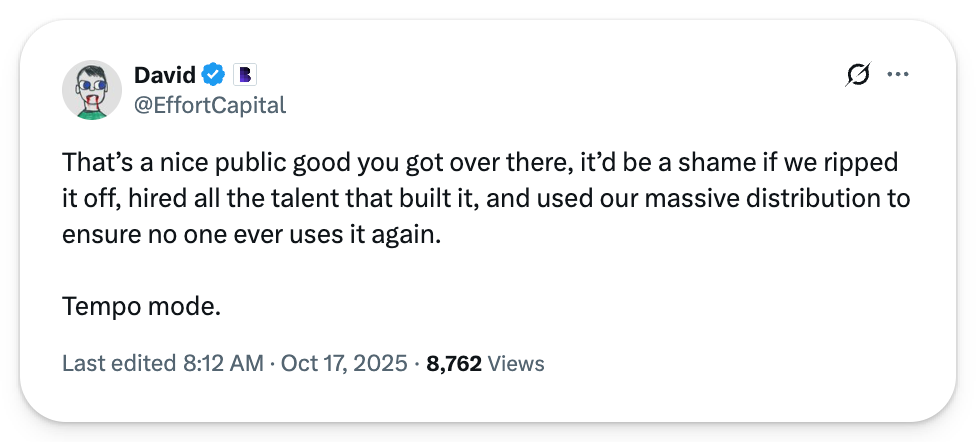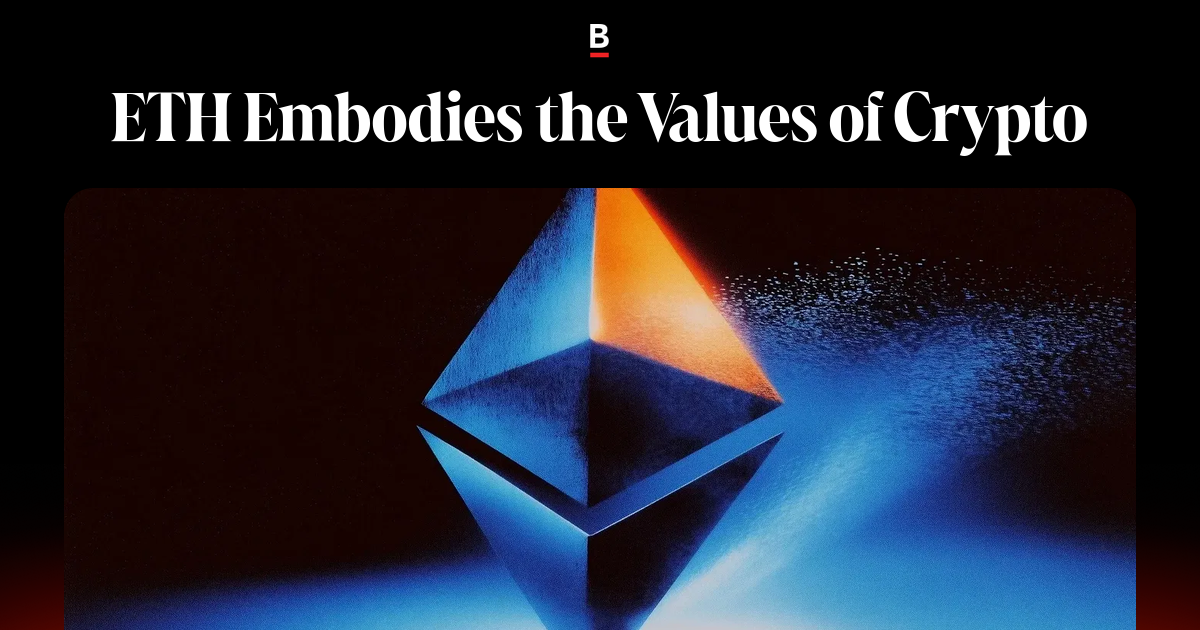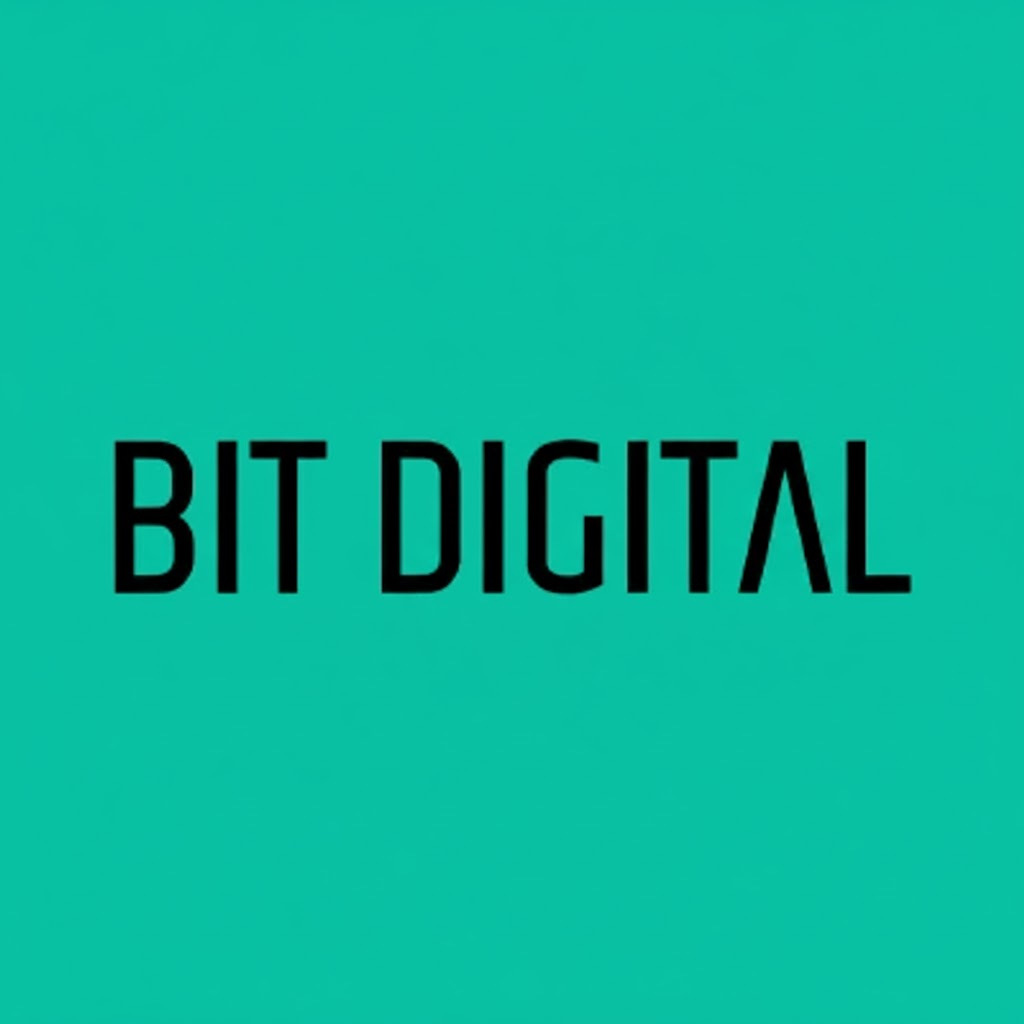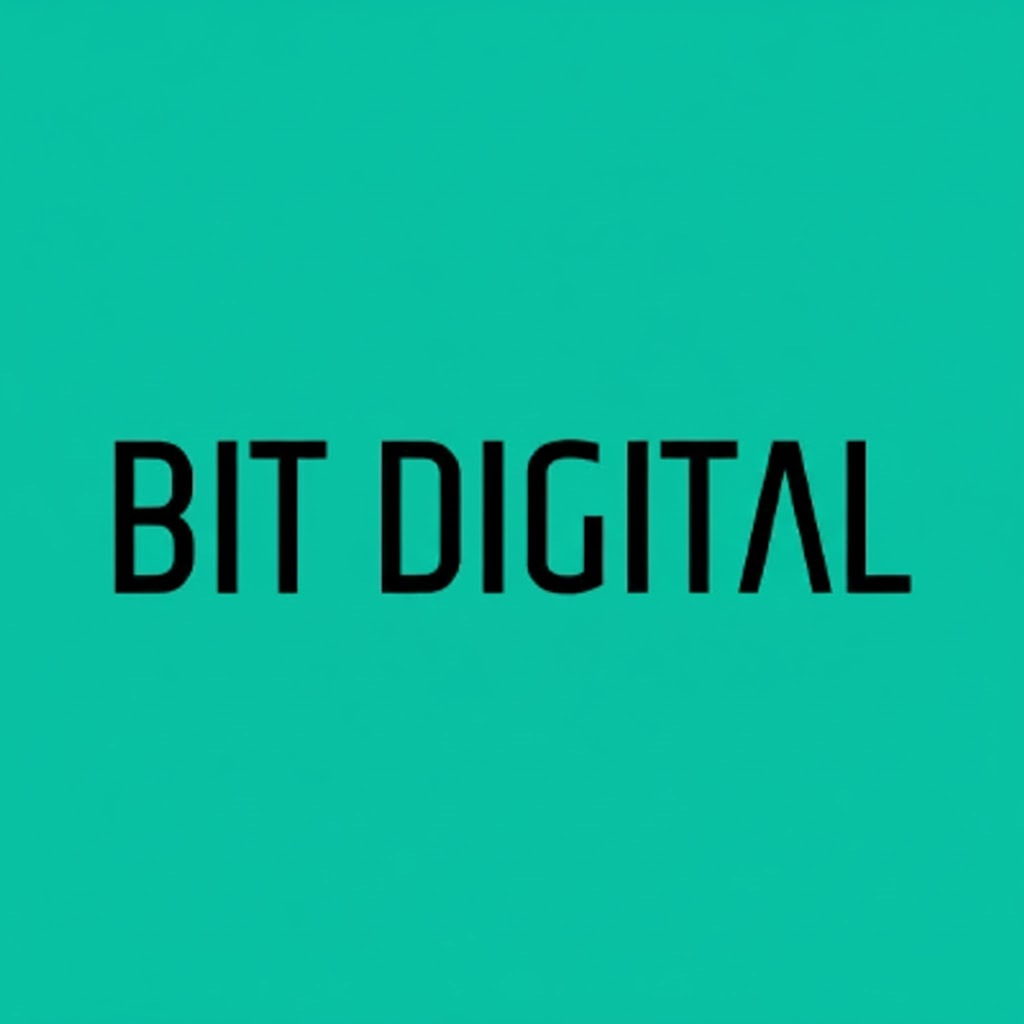
Subscribe to Bankless or sign in
Yesterday, we lost  Ethereum researcher Dankrad Feist. The longtime Ethereum Foundation researcher shared that he will be taking his talents to the deep-pocketed, Stripe-incubated EVM stablecoin L1 chain – Tempo.
Ethereum researcher Dankrad Feist. The longtime Ethereum Foundation researcher shared that he will be taking his talents to the deep-pocketed, Stripe-incubated EVM stablecoin L1 chain – Tempo.
Dankrad is certainly the biggest name on a long list of very talented and highly valued Ethereum builders who have been brought into the fold at Tempo. Mallesh from Special Mechanisms Group (who himself has also joined Tempo) posted a thread highlighting all of the talent that  Tempo has amassed.
Tempo has amassed.
There’s always been this fear that for-profit organizations would pay top-dollar to poach talent that was incubated in Ethereum's open source community, but before Stripe's concerted entry into the market alongside ![]() Paradigm that fear had never really been validated.
Paradigm that fear had never really been validated.
Non-Ethereum EVM L1s never felt particularly sharp or compelling to me — or seemingly to anyone important in Ethereum. But Stripe is a different beast – the imagined boogeyman of open-source co-option was always a real threat and now it has seemingly appeared.
If Tempo were an open-source, community-owned, decentralized, and research-oriented org that would be one thing.
But the same day that Dankrad announced his departure from Ethereum to Tempo, the organization announced that Tempo raised $500 million at a whopping $5 billion valuation, from Greenoaks and Thrive – two very buttoned-up TradFi venture and growth equity firms.
The known equity-holders of Tempo are currently Stripe, Paradigm, Greenoaks, SV Angel, Thrive, Ribbit, and Sequoia.
I’m not in there. You’re not in there.
Perhaps we'll get an airdrop one day? But if Tempo is for issuing stablecoins and making large bank-to-bank payments, how are any non-institution players supposed to have a seat at that table and compete with the potential trillions of dollars in volume that banks could opt to settle between themselves on Tempo?

So far, everyone who has joined Tempo seems to be citing two core premises:
- The time is now to take blockchains mainstream and provide real world value to everyday people.
- Tempo will grow the pie for all of Crypto.
You can find these comments in Dankrad's post along with the claim that this will all ultimately be "of great benefit to Ethereum."
It's worth explicitly noting here, Dankrad has been making invaluable contributions for Ethereum for seven solid years. That’s a lot of time! I certainly won’t blame someone for itching to want to do something new and change up their lives. That’s a very personal choice, and perhaps Dankrad saw an opportunity to positively influence the beginning of something he sees potential in, and hopefully Tempo will truly be much better for it.
All this said, I'm still skeptical (at best) of some of the above claims from the folks scaling up Tempo with Stripe.
As I see it, the reason why Tempo exists is to intercept the incoming flow of trillions of dollars of stablecoins predicted over the next decade, and put it on their privately-owned blockchain. Sure, it will grow the pie, but Stripe and Tempo's founding team nonetheless intends to consume as much of that pie as possible.
As for how Tempo is of great benefit to Ethereum and its community… idk, I’d like to hear the leadership at Tempo elaborate on that further.
The Ethereum community's reactions to Dankrad's departure and my own thoughts here certainly highlight some genuine concerns in how Tempo and its Ethereum builder team seem to be barreling forward with a solution for institutions that ignores Ethereum and many of the values that distinguish Ethereum from TradFi.
Ultimately, the hope and intent for Ethereum is to always be the open-source gravitational center of all of settlement – that's a mission that no closed-source private corpo-L1 will ever be able to shift.
I have zero doubts that Tempo will convince plenty of fintechs and banks to use their settlement layer in lieu of Ethereum, because they’ll have the Stripe brand, business development arm and throughput to support them. But, at the end of the day, it will ultimately be beholden to the nation state that its equity-holders reside in, and issuing a L1 token will only go so far to change this. Nation-state compliance is going to be a core component of Tempo.
Only Ethereum and Bitcoin, and – maybe if you squint – a few other chains, operate above the law – anyone’s law.
As blockchains march toward the mainstream and government administrations come and go, we’re going to see this radically independent property of Ethereum become increasingly relevant, and the cracks separating Ethereum from Tempo and other corpo-L1s will only grow.
Ethereum is special.








